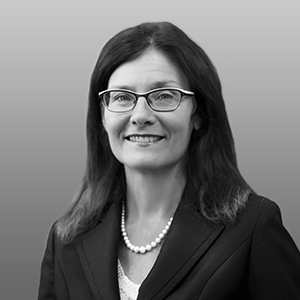- January 26, 2021
Behind the Scenes on TCFD Reporting: Tackling Key Issues



Risk and investment teams are leading day-to-day sustainable finance and climate risk management activities and playing an essential role in shaping the public disclosure about these issues. As part of its Sustainable Finance and Climate Risk series, GRI hosted a special panel focused on: “Behind the Scenes on TCFD[1] reporting – Tackling Key Issues”
GRI’s Alyson Slater, Senior Director, Sustainable Finance, hosted the session and invited two recognized industry experts to share their experience and advice with peers on the building blocks behind climate related financial disclosure, and how they organize internally. Guest speakers included:

Whitney McWade
Director, Sustainability Strategy, Disclosure & Impact Measurement, Legal & Regulatory Compliance, BMO Financial Group

Alison Schneider
Vice-President, Responsible Investment, Alberta Investment Management Corporation (AIMCo)
At BMO, Ms. McWade said it all starts with the client and how climate change and financial disclosure requirements are affecting them. BMO has been piloting different methodologies for assessing sectors that are most vulnerable to climate risk including real estate assets and agriculture.
Ms. Schneider spoke to the journey that AIMCo has been on to address the TCFD reporting framework, including scenario analysis which revealed not only risk factors, but also levers and important investment opportunities. Ms. Schneider discussed how climate risk scenario analysis can help firms understand risk thresholds and encouraged firms to use scenario analysis if they haven’t already.
Here are a few key points shared during the discussion:
Ms. Slater wrapped up the panel by saying, “In GRI’s research of company disclosure over the past three years, we saw firms progressively providing higher quality and more depth in their disclosure around climate-related financial issues. It’s a journey that firms clearly understand is critical to long-term, sustainable growth.”
[1] The Financial Stability Board formed the Task Force on Climate-Related Financial Disclosures (TCFD) that, in 2017, issued a set of recommendations for voluntary climate-related financial risk disclosures for any firm to use that promote more informed investment, credit, and insurance underwriting decisions.